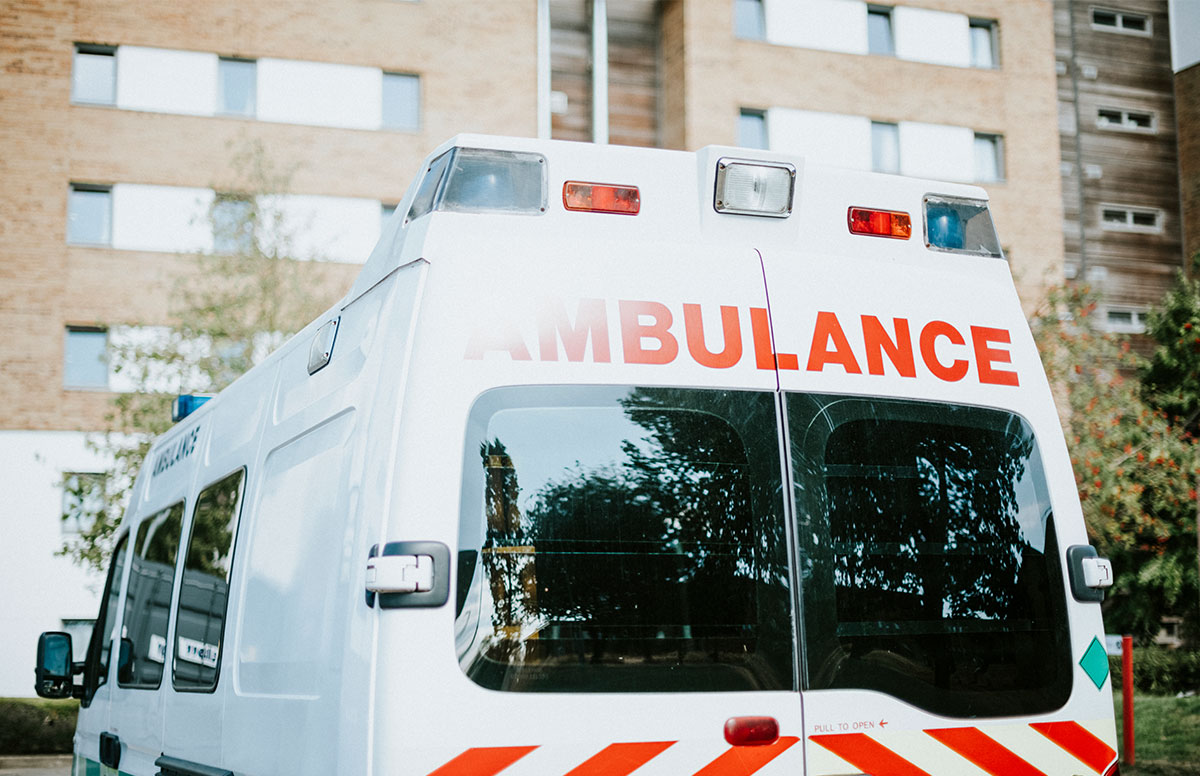Disaster Resources: Preparedness, Response and Recovery
LeadingAge Disaster Resources: Preparedness, Response and Recovery
Community-Based: Preparedness | Pandemic Flu Resources | Disaster Response | Recovery
(Consumer-Guided: BenefitsCheckUp for Individuals and/or Caregivers)
Important Links for Weather-Related Disasters in Progress
Administration for Community Living’s Hurricane Florence resources
National Hurricane Center Tracking/Storm Status – Get real time status reports on the latest hurricane via the National Hurricane Center
State Emergency Management Agencies – Find localized information on your state’s emergency management website or other digital channels.
Map of open shelter locations – Listing maintained by the American Red Cross in the event of emergency
CMS Hurricane Information and Policy Guidance – Waivers, public health emergency declarations, Medicare fee-for-service payment and billing policies, information on the Emergency Prescription Assistance Program, and other hurricane-related information.
HUD Multifamily Disaster Response Policies and Guidance – To assist residents displaced by hurricanes, HUD often requests vacancy information be submitted from all Owners and Agents of HUD Insured or Assisted Multifamily Properties. Links also accesses HUD guidance (Chapter 38) and status info.
[See also the Red Cross National “Safe and Well” Registry info below, in “disaster recovery” below for information on how to post and check status of loved ones during and immediately following a disaster.
Disaster Preparedness
Ready to Respond: Disaster Staffing Toolkit, a user-friendly toolkit that includes videos, guides, worksheets and checklists to help housing organizations prepare to respond when disaster strikes.
Ready.gov – Ready.gov is the official Homeland Security site which has special preparedness info for seniors/disabled, checklists, links to state and community information, and ways to get involved with your local Citizen Corps to better prepare your community through participation in local planning and exercises.
FEMA hurricane preparedness information – Hurricane information from FEMA and Homeland Security.
Disaster Assistance.gov – Integrated Access to Disaster Recovery and Response Resources
An easy-to-use website that consolidates disaster information in one place, launched in 2009 with 17 U.S. Government agencies, sponsoring more than 50 forms of disaster assistance, contributing to the website. It includes an anonymous assistance eligibility survey and a single, online application which will allow for online status checks for applications submitted here.
Emergency Readiness Kit for Older Adults and Caregivers – For those who rely on residents to have their own plans in case of emergency, the CDC has compiled a range of state and local specific checklists and resources specifically to help seniors make their own personal plans.
Updating Your Disaster Plan – A LeadingAge publication (2003) with significant resources and checklists to help facilities across the continuum update their disaster response plans for all purposes in a post-9/11 environment.
LeadingAge New Jersey Emergency Plan Development Guide – A disaster plan template developed by LeadingAge New Jersey (formerly NJANPHA)
The Partnership for Inclusive Disaster Strategies, Inc. is a clearinghouse for information and a community organizing resource focused on meeting the access and functional needs of people with disabilities throughout emergency preparedness, disaster planning, response, recovery and mitigation. Partnership resources include a Hotline – (800) 626-4959 – operated by a dedicated volunteer network of disability experts that use a case-management model to support persons with disabilities and organizations working to intentionally address disability inclusive disaster response, relief and recovery efforts.
AHRQ Emergency Preparedness Atlas: U.S. Nursing Home and Hospital Facilities – U.S. Department of Health and Human Services (HHS) Agency for Healthcare Research and Quality (AHRQ) resource that can help states and communities with disaster planning and response for nursing homes Includes case studies and maps for all 50 states to help communities identify local healthcare facilities (hospitals and nursing homes) that could be available and prepared to provide assistance under emergency conditions.
Astrodome Analysis: Best Practices for Managing Elderly Disaster Victims – Baylor College of Medicine’s analysis and review of how state and local organizations can implement a triage tool in mass evacuation shelters to assure that seniors receive critical services and direct care – providing model assessment tool and recommended strategies for use/intervention.
Making Community Emergency Preparedness and Disaster Response Programs Accessible to Persons with Disabilities – U.S. Dept of Justice – ADA report provides practical and detailed recommendations to address the unique planning, notification, evacuation and sheltering challenges for those who work with seniors and other persons with physical limitations, chronic health issues and/or communications impairments. A MUST READ for all planners who work with the elderly.
Workplace Violence: OSHA Guidelines for Preventing Workplace Violence for Healthcare and Social Service Workers – Healthcare and social service workers face an increased risk of work-related assaults resulting primarily from violent behavior of their patients, clients and/or residents. OSHA has determined that a written program for workplace violence prevention, incorporated into an organization’s overall safety and health program, offers an effective approach to reduce or eliminate the risk of violence in the workplace.
Disaster Response
For individuals impacted by a disaster, in order to receive any kind of federal assistance, you must register first with FEMA. A good resource is FEMA’s 3 Step Guide for Assistance; after that, you can apply online or call 800-621-3362 / TTY 800-462-7585. Register to let your family and friends know that you are safe and well and give them peace of mind.
In a community struggling to respond to and recover from a disaster, an influx of unexpected or unneeded volunteers can make the process even more difficult. If you just want to help, the best way to volunteer if you are not affiliated with an organization is to identify the appropriate volunteer reception center and register your interest/availability to help.
State Emergency Management Agencies – Be connected to first-responders, preferably before a disaster hits. Find localized information on your state’s emergency management website or other digital channels.
HUD Multifamily Disaster Response Policies and Guidance – access HUD guidance on owner/agent obligations and HUD field office actions following an emergency (Chapter 38 of Handbook 4350.1) and the national housing locator registry.
Rural Development Disaster Assistance – USDA has posted its own disaster response information and resources related to Harvey.
Emergency Care Guidance for Dementia Residents – An Alzheimer’s Association resource to help families and caregivers of persons with dementia.
“The Calm Before the Storm: Family Conversations about Disaster Planning, Caregiving, Alzheimer’s Disease and Dementia.” – The Hartford Center for Mature Market Excellence offers this free downloadable publication that covers virtually every imaginable contingency for effectively and confidently helping a loved one with dementia through a major event.
HHS Identifies Practices and Resources for Emergency Responders/Officials to Help Ensure Individuals Have Equal Access to Emergency Services – HHS’ Office of Civil Rights has identified practices and resources for emergency responders and officials to consider to ensure equal access to all and avoide separating people from their sources of support, such as service animals, durable medical equipment, caregivers, medication and supplies.
Disaster Recovery
Red Cross National “Safe and Well” Registry – If you have been affected by a disaster, this website provides a way for you to register yourself as “safe and well” – to communicate to your family members, letting them know of your well-being. Concerned family and friends can search the list of those who have registered themselves as “safe and well,” also.
FEMA state offices – List of State Offices and Agencies of Emergency Management, with links disaster info, planning and applying for assistance, should the need arise.
HUD Research and Resources for Flood Recovery Toolkit – Includes research reports, other publications, and links and is free. Print copies are free for Midwest flood area residents from 1-800-245-2691, option 1.
*NEW* Fire and Water Damage Restoration Guide – Consumer Affairs guide that includes extensive information on water, fire and data restoration after a disaster. It also offers advice on what qualities to consider when choosing a restoration team such as certification, experience, asset protection, recovery time and storage options.
Picking Up the Pieces – A Housing Assistance Council guide to rural housing resources for disasters
Mental Health Resources – Centers on Disease Control/Mental Health Unit easy-to-use publications, worksheets, tips and articles – to help individuals and organizations respond to disaster related stress.
We Can Do Better: Lessons Learned for Protecting Older Adults in Disasters – AARP Public Policy Institute report featuring information and best practices regarding protecting older adults in the midst of a disaster.
OSHA Guidance on Preparing Workplaces for an Influenza Pandemic – Employers and employees can use this planning guidance to help identify risk levels in workplace settings and appropriate control measures that include good hygiene, cough etiquette, social distancing, the use of personal protective equipment, and staying home from work when ill.
PandemicFlu.gov – PandemicFlu.gov provides one-stop access to U.S. Government avian and pandemic flu information, including federal, state, local, business and individual planning resources and monitoring links.
Pandemic Flu Checklist for Residential Care Facilities – CMS and the Centers for Disease Control and Prevention recently issued a checklist to help nursing homes and other residential care facilities assess and improve their ability to respond to a flu pandemic.
Consumer-Guided BenefitsCheckUp
Preparing for a storm or rebuilding after a disaster, it’s difficult to know where to get reliable information. BenefitsCheckUp® now has a special consumer-guided disaster resources tool. We all may find areas of interest here. And this tool could be very useful to staff whose own homes may be at risk or have been impacted during a disaster.
Fill out the BenefitsCheckUp questionnaire to generate a custom disaster preparedness plan. Tell the tool what is needed and it walks individuals through making a personal plan or connects individuals impacted by disaster to recovery programs nearest them. The printable plan will contain some of the things older adults and/or their caregivers need to know before a catastrophic weather event and resources available after the disaster.
A couple additional reminders, if you live in an area that was affected by a hurricane or another disaster, you may be able to get special assistance. You can visit www.disasterassistance.gov to find out what kinds of federal help is available, apply for assistance, and to later check the status of your application.

Most Recommended
October 15, 2025
 Shutdown Week Three: Impact of Ongoing Closure on Affordable Housing
Shutdown Week Three: Impact of Ongoing Closure on Affordable Housing
February 03, 2026
Fiscal Year (FY) Funding 2026
October 07, 2025
Immigrant Workforce Matching Program Brings Workforce Relief
Recently Added
February 13, 2026
Redefining Memory Care Engagement: New CAST Case Study
February 13, 2026
Prioritizing User-Informed App Design
February 13, 2026
CAST Members in the News
February 13, 2026



